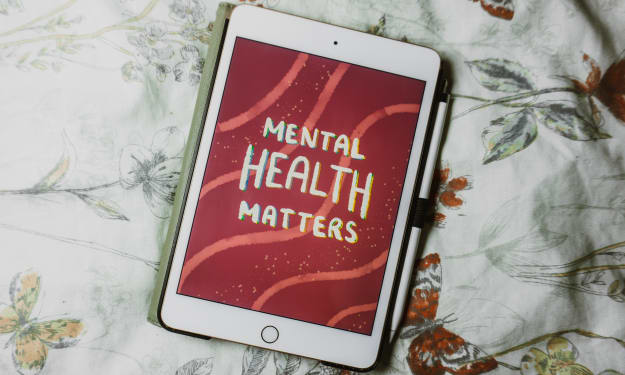Mindfulness Techniques for Managing Anxiety and Depression
Using Mindfulness As Part of Your Coping Strategy

Anxiety and depression are two very common mental health issues that affect millions of people around the world. These conditions can have a significant impact on a person's daily life, making it difficult to function and enjoy activities.
It is crucial to manage anxiety and depression effectively to improve overall well-being and quality of life. One tool that has gained popularity in recent years for managing these conditions is mindfulness.
Mindfulness is a practice that involves bringing a person's attention into the present moment without any judgment. It is about being fully aware of one's thoughts, feelings, and sensations in the present moment.
By practicing mindfulness, individuals can develop a greater sense of self-awareness and learn to respond to their thoughts and emotions in a more constructive way.
Understanding Mindfulness: What It Is and How It Works
Mindfulness has its roots in ancient Buddhist traditions but has been adapted and secularized for modern-day use. It has gained significant attention in the field of psychology and mental health due to its potential benefits for managing anxiety and depression.
At its core, mindfulness is about paying attention to the present moment with an attitude of curiosity, openness, and acceptance. It involves intentionally focusing one's attention on the present moment, observing thoughts and emotions without judgment, and cultivating a sense of acceptance and compassion towards oneself and others.
The Benefits of Mindfulness for Anxiety and Depression

Numerous studies have shown that mindfulness can be an effective tool for managing anxiety and depression. Research has found that regular mindfulness practice can reduce symptoms of anxiety and depression, improve overall well-being, and enhance quality of life.
One study published in the Journal of Consulting and Clinical Psychology found that mindfulness-based cognitive therapy (MBCT) was as effective as medication in preventing relapse in individuals with recurrent depression.
Another study published in the Journal of Clinical Psychology found that mindfulness-based stress reduction (MBSR) significantly reduced symptoms of anxiety and depression in individuals with generalized anxiety disorder.
In addition to reducing symptoms, mindfulness can also improve overall mental health and well-being.
It has been found to increase positive emotions, enhance self-compassion, improve resilience, and promote a greater sense of overall life satisfaction.
Mindfulness Techniques for Managing Anxiety

There are several mindfulness techniques that can be helpful for managing anxiety. These techniques can help individuals become more aware of their thoughts and emotions, reduce stress, and cultivate a sense of calm and relaxation.
One technique is deep breathing exercises. Deep breathing involves taking slow, deep breaths by breathing in through the nose and exhaling slowly through the mouth.
This technique can help activate the body's relaxation response and reduce feelings of anxiety.
Another technique is body scan meditation. This involves systematically scanning the body from head to toe, paying attention to any sensations or areas of tension.
By bringing awareness to the body, you are able to release tension and promote relaxation.
Mindful walking is another technique that can be helpful for managing anxiety. This involves walking slowly and deliberately, paying attention to the sensations in the feet and legs as they make contact with the ground.
This technique can help individuals become more grounded and present in the moment.
Mindful eating is another technique that can be beneficial for managing anxiety. This involves eating slowly and savoring each bite, paying attention to the taste, texture, and sensations of the food.
By eating mindfully, individuals can develop a greater sense of satisfaction and reduce emotional eating.
Visualization techniques can also be helpful for managing anxiety. This involves imagining a peaceful and calming scene in the mind's eye, such as a beach or a forest.
By visualizing a peaceful scene, individuals can create a sense of calm and relaxation in the body and mind.
Mindfulness Techniques for Managing Depression
Mindfulness can also be beneficial for managing depression. There are several techniques that can help individuals cultivate a sense of self-compassion, gratitude, and joy.
Loving-kindness meditation is a technique that involves sending well-wishes and compassion to oneself and others.
By cultivating feelings of love and kindness, individuals can counteract negative self-talk and develop a greater sense of self-acceptance and compassion.
Gratitude practice is another technique that can be helpful for managing depression. This involves taking time each day to reflect on and write down things that one is grateful for. B
y focusing on the positive aspects of life, individuals can shift their attention away from negative thoughts and cultivate a sense of gratitude and joy.
Mindful journaling is another technique that can be beneficial for managing depression. This involves writing down thoughts and emotions in a non-judgmental and reflective way.
By journaling, individuals can gain insight into their thoughts and emotions and develop a greater sense of self-awareness.
Mindful movement, such as yoga or tai chi, can also be helpful for managing depression. These practices involve gentle movements and breathwork that can help release tension in the body and promote relaxation and well-being.
Mindful self-compassion is another technique that can be beneficial for managing depression. This involves treating oneself with kindness, understanding, and acceptance.
By cultivating self-compassion, individuals can counteract negative self-talk and develop a greater sense of self-worth and well-being.
Incorporating Mindfulness into Your Daily Routine

To reap the benefits of mindfulness, it is important to make it a regular part of your daily routine.
Here are some tips for incorporating mindfulness into your daily life:
1. Start small: Begin with just a few minutes of mindfulness practice each day and gradually increase the duration as you become more comfortable.
2. Find a quiet space: Choose a quiet and comfortable space where you can practice mindfulness without distractions.
3. Set a regular time: Establish a regular time each day to practice mindfulness, whether it's in the morning, during lunch break, or before bed.
4. Integrate mindfulness into daily activities: Practice mindfulness while doing everyday tasks such as brushing your teeth, washing dishes, or taking a shower. Pay attention to the smells, sensations, and sounds while engaging in these activities.
5. Use reminders: Set reminders on your phone or place sticky notes in visible places to remind yourself to practice mindfulness throughout the day.
6. Be patient and kind to yourself: Remember that mindfulness is a skill that takes time to develop. Be patient with yourself and approach your practice with kindness and self-compassion.
Consistency is key when it comes to mindfulness practice. By making it a regular part of your daily routine, you can experience the full benefits of mindfulness for managing anxiety and depression.
Seeking Professional Help: When to Consider Therapy for Anxiety and Depression
While mindfulness can be a helpful tool for managing anxiety and depression, it is important to recognize when professional help may be needed.
If you are experiencing severe symptoms of anxiety or depression that are interfering with your daily life, it may be time to seek therapy.
Some signs that it might be time to consider going to therapy include:
- Persistent feelings of sadness or hopelessness
- Difficulty functioning at work or school
- Social withdrawal and isolation
- Changes in appetite or sleep patterns
- Thoughts of self-harm or suicide
There are several therapy options available for anxiety and depression, including cognitive-behavioral therapy (CBT), dialectical behavior therapy (DBT), and acceptance and commitment therapy (ACT).
These therapies can help individuals develop coping skills, challenge negative thoughts, and cultivate a greater sense of self-awareness and well-being.
Mindfulness can also be incorporated into therapy sessions to enhance the effectiveness of treatment. Therapists may teach mindfulness techniques and encourage clients to practice mindfulness outside of therapy sessions to reinforce the skills learned in therapy.
In conclusion, mindfulness is a powerful tool for managing anxiety and depression. By practicing mindfulness, individuals can develop a greater sense of self-awareness, reduce symptoms of anxiety and depression, and improve overall well-being.
There are various mindfulness techniques that can be helpful for managing anxiety and depression, such as breathing exercises, body scan meditation, mindful walking, and visualization techniques.
It is important to make mindfulness a regular part of your daily routine to experience the full benefits. However, it is also important to recognize when professional help may be needed.
If you are experiencing severe symptoms of anxiety or depression, it may be time to seek therapy. Therapists can help individuals develop coping skills, challenge negative thoughts, and incorporate mindfulness into their treatment plan.
By combining mindfulness with professional help, individuals can effectively manage anxiety and depression and improve their mental health and well-being.
About the Creator
Richard Bailey
I enjoy writing about many different topics but my main focus is mental health, mental illness, and specifically depression. I have a long personal experience with Severe Treatment-Resistant Depression and Anxiety.






Comments
There are no comments for this story
Be the first to respond and start the conversation.